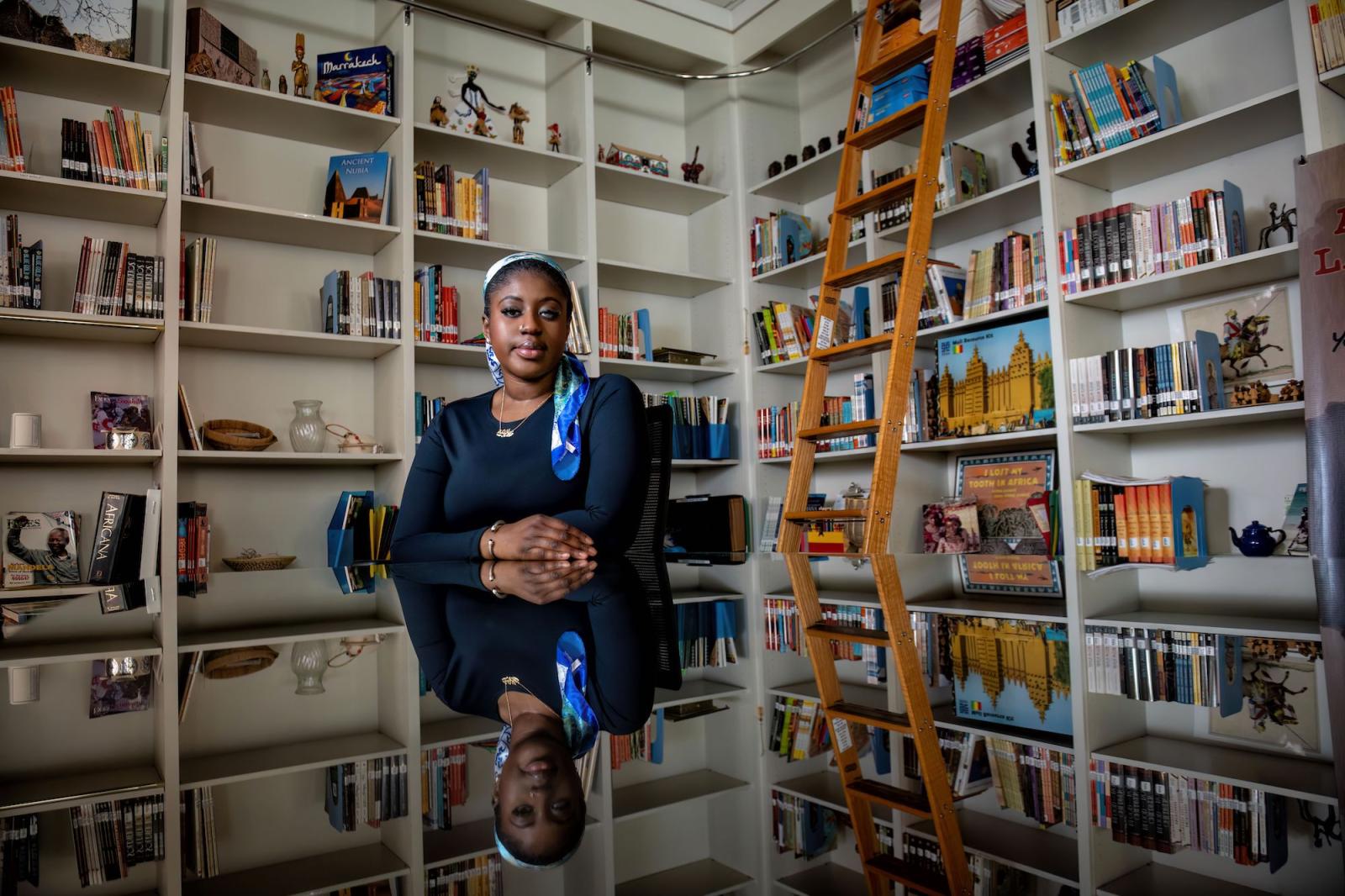As a first-generation Malian Muslim woman born and raised in the Bronx, New York, my multi-layered identity has affected my lived experiences in a myriad of ways. My parents, immigrants from Mali, tried to balance the responsibilities of encouraging me to chase my dreams while ensuring I was aware of society’s pre-determined boundaries. “You have to work twice as hard so that you won't be like them.” They rarely said what they meant by them, but we all understood. In my parents’ eyes, my direct lineage to Mali entitled me to greater opportunities.
However, I observed a disconnect between the Malinese greatness that my parents envisioned and what I was being taught about the continent of Africa in American classrooms. The dominant population in the public schools that I attended were Hispanics and African Americans. This skewed outlook created prejudice and division within the students. I often struggled with my Muslim identity, especially post 9/11. As a Black Muslim, I did not experience the discrimination that other Muslims were experiencing due to the traumatic event but the racism of being a Black Muslim, even within my own community. The American curriculum and the media painted Africa as an underdeveloped and undesirable corner of the Earth, further complicating my understanding of who I was and what I could accomplish. These realities of navigating American society fueled my desire to learn more about the roots of society’s standards.
My high school classmates and I hosted a series of racial roundtables at Teachers College at Columbia University to explore the roots and consequences of social barriers enforced against African American women in the United States. The attendees represented the full scope of the African diaspora and engaged with the panelists and me as we discussed our multi-layered identities as descendants of African people. This experience helped me realize that I should no longer be the student who waits to be taught about my identity, but instead, the educator who challenges others to acknowledge my existence.
The American curriculum and the media painted Africa as an underdeveloped and undesirable corner of the Earth, further complicating my understanding of who I was and what I could accomplish.”
Determined to explore and learn on an appropriate platform to discuss these issues, I enrolled and graduated from the City College of New York with a BA in international studies and a minor in Black studies. While a student at the City College, I became a member of the African Student Union and was a Colin Powell Fellow for Leadership and Public Service. I later enrolled at the illustrious Howard University to complete my master’s in African studies.
At Howard is where I refined my research agenda, which focuses on the Malian population contending with its layered identities in the United States. Through selected courses at Howard, using an Africentric lens, I explored the significance and value of centering intersectional identities in creating a cohesive society, especially in the African context. Opportunities such as presenting at the 62nd Annual African Studies Association on “Exploring Malian Identity Through a Multigenerational Lens", a project emphasizing how generation impacts how we identify, have further allowed me to position myself as a burgeoning scholar of African studies.
What I have learned about myself thus far is that my interpersonal experience is part of a larger shared experience of Black women throughout the African diaspora.”
My goal is to emphasize the significance of intersecting identities of Black people in all of my work to support the cultivation of a cohesive society. To do that, I recognize that I must first understand my own identity. I have done this work through constant reflection, and I aim to continue this work for the rest of my life, as I recognize that identity is dynamic and ever-changing. What I have learned about myself thus far is that my interpersonal experience is part of a larger shared experience of Black women throughout the African diaspora. My identity empowers me even when I face many challenges. Further, when exploring identity, I must always acknowledge my position in society. Utilizing the Black Racial Model, I would classify myself in the “immersion/emersion” stage of my identity.
Navigating my Malian identity and position in society has afforded me certain privileges to my counterparts. My ability to trace back my ethnic roots amplifies my advocacy and connections to the diaspora, and informs my personal experience. Through research and publication, I will create spaces that will allow members from the diaspora to share their experiences, just as I have the platform in doing so now.
Aichaa Namiga (MA ’23) received her master’s degree from Howard in May. She currently serves as a program coordinator at the Ralph Bunche International Affairs Center on campus.
Article ID: 1441




